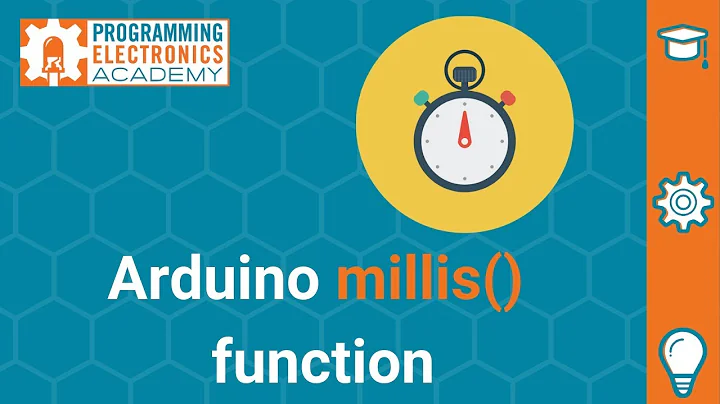Actual millis in a C++
11,719
Solution 1
It's part of the language standard these days (some years now):
See it Live On Coliru
#include <chrono>
#include <iostream>
int main()
{
using namespace std::chrono;
auto epoch = high_resolution_clock::from_time_t(0);
// ...
auto now = high_resolution_clock::now();
auto mseconds = duration_cast<milliseconds>(now - epoch).count();
std::cout << "millis: " << mseconds;
}
Solution 2
In C++ you also have clock()
#include <time.h>
...
clock_t start = clock();
... some processing ...
clock_t stop = clock();
double elapsed = double(stop - start) / CLOCKS_PER_SEC;
There are also other more accurate ways of measure timings, but they are more dependent on which king of system you're running your programs on.
Solution 3
If you have C++11 support available, you may want to look into std::chrono.
#include <iostream>
#include <chrono>
#include <ctime>
long fibonacci(int n)
{
if (n < 3) return 1;
return fibonacci(n-1) + fibonacci(n-2);
}
int main()
{
std::chrono::time_point<std::chrono::system_clock> start, end;
start = std::chrono::system_clock::now();
std::cout << "f(42) = " << fibonacci(42) << '\n';
end = std::chrono::system_clock::now();
std::chrono::duration<double> elapsed_seconds = end-start;
std::time_t end_time = std::chrono::system_clock::to_time_t(end);
std::cout << "finished computation at " << std::ctime(&end_time)
<< "elapsed time: " << elapsed_seconds.count() << "s\n";
}
Failing that, you could use the C style std::time as follows:
#include <ctime>
#include <iostream>
int main()
{
std::time_t result = std::time(NULL);
std::cout << std::asctime(std::localtime(&result))
<< result << " seconds since the Epoch\n";
}
Related videos on Youtube
Comments
-
 PEAR almost 2 years
PEAR almost 2 yearsIs it possible to get the actual millis since I-don't-know in a C++-programm like
System.currentTimeMillis()in Java? I knowtime(), but I think it's not exactly enough to measure short times, is it?-
manlio about 10 yearsTake a look at these questions: how to get time in millis in c++ just like java and C++ Timer function to provide time in nano seconds
-
 László Papp about 10 years@slugonamission: that is *nix specific...
László Papp about 10 years@slugonamission: that is *nix specific... -
slugonamission about 10 years@LaszloPapp - oops, deleted.
-
-
 PEAR about 10 yearsOk, is there any constant to get milliseconds?
PEAR about 10 yearsOk, is there any constant to get milliseconds? -
 smoothware about 10 years+1 This is how I would do it in C++. Note:
smoothware about 10 years+1 This is how I would do it in C++. Note:using namespace std::chrono;seems very worth it here. -
David Schwartz about 10 yearsThe
clockfunction returns CPU time. I get the impression this is asking about wall time. -
sehe about 10 yearsWhat do seconds sinds the epoch have to do with things?
-
 László Papp about 10 years@sehe: read about System.currentTimeMillis in the original question, please. This may be a good starting point.
László Papp about 10 years@sehe: read about System.currentTimeMillis in the original question, please. This may be a good starting point. -
sehe about 10 yearsChanged the sample to actually print milliseconds since the epoch
-
sehe about 10 years
-
6502 about 10 years@pear: what about multiplying the result of the division by 1000? :-)
-
 Walter about 10 years@LaszloPapp This will not work without C++11 support -- there no point to consider outdated standards, unless you're dealing with legacy code.
Walter about 10 years@LaszloPapp This will not work without C++11 support -- there no point to consider outdated standards, unless you're dealing with legacy code. -
 László Papp about 10 years@Walter: clearly, you have not worked much with embedded. I understand bleeding edge desktop people hardly see out of their box, but that is just a specific domain. To be fair, even on desktop there are plenty of VS2010 and VS2008 users, not to mention Windows CE, etc.
László Papp about 10 years@Walter: clearly, you have not worked much with embedded. I understand bleeding edge desktop people hardly see out of their box, but that is just a specific domain. To be fair, even on desktop there are plenty of VS2010 and VS2008 users, not to mention Windows CE, etc. -
sehe about 10 yearsOkay, time to calm down people. It's all useful information. No need to imply incompetence left or right
-
 Matthieu M. about 10 years@LaszloPapp: And let's not forget corporate world, the migration from gcc 3.4 to gcc 4.3 is still ongoing where I work (has been for the last 7 years)...
Matthieu M. about 10 years@LaszloPapp: And let's not forget corporate world, the migration from gcc 3.4 to gcc 4.3 is still ongoing where I work (has been for the last 7 years)... -
 László Papp about 10 years@MatthieuM.: yes, I agree.
László Papp about 10 years@MatthieuM.: yes, I agree. -
 PEAR about 10 years@6502: Of course, but this would not improve the accuracy, would it?
PEAR about 10 years@6502: Of course, but this would not improve the accuracy, would it? -
6502 about 10 years@PEAR: the value of the constant
CLOCKS_PER_SECis system dependent and the same goes for the provided accuracy (they are not required to be aligned; e.g.CLOCKS_PER_SECcould be 100000 but the accuracy just 20ms). -
Tad over 9 yearsshould the code say auto epoch = system_clock::from_time_t(0); ? My code wouldn't compile with high_resolution_clock::from_time_t(0);
-
sehe over 9 years@Tad your compiler might not be to update/have full support for std::chrono (yet): en.cppreference.com/w/cpp/chrono/high_resolution_clock. Depending on the resolution you desire,
system_clockcould be fine for your purposes -
Tad over 9 yearsI used this code and time calculated was 1412002099144 miliseconds. Is time 0 in 1970? Why not use system_clock::now()? I am using gcc 4.9
-
sehe over 9 years@Tad look at the question for context. Heck, here's a link for you docs.oracle.com/javase/7/docs/api/java/lang/…





